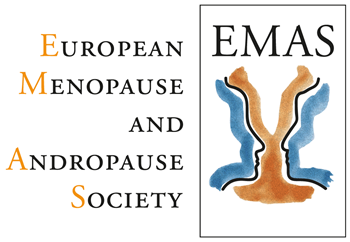Intro: The Mediterranean diet is a plant-dominant dietary pattern, low in saturated fats, prevailing in the olive-growing areas of the Mediterranean basin.
Understanding how menopause impacts various aspects of health is crucial for creating a supportive workplace.
This podcast episode brought to you by the European Menopause and Andropause Society (EMAS), features Prof Antonio Cano exploring the benefits of the Mediterranean diet for menopausal health.
Let’s dive into today’s discussion.
Antonio Cano: I am Professor Antonio Cano from Valencia, Spain, and in the coming minutes I will be delighted to share with you the main features of the Mediterranean diet in what refers to the dysfunctions associated with menopause and particularly the case of women who are passing their menopause while incorporated in the markets, work markets, and at the workplace.
What I will do is try to answer three very basic questions.
The first one is Why a Mediterranean diet?
The second will be Why at menopause?
And the third will be just to review the main benefits provided by the Mediterranean diet for women across the menopause.
So I will start by reviewing data that show that obesity is a pandemic which extends across the world and also is particularly important in some countries like the USA or Mexico, for example.
And the rates of obese people keep increasing. So that, by 2030, it has been calculated that 40% of the American population will be obese. So diet is important.
It’s also important not only because of obesity but also because inaccuracies in diet are associated with mortality. For example, it has been shown in recent data published in the Lancet that 11,000,000 deaths in the world in 2017 were the result of inaccuracies in diet. For example, a high consumption of salt or a low level of fruits.
And as I was saying, it is important at the moment of menopause because menopause is associated and disease data we know from the SWAN study is associated with an increase in fat and an increase in weight. And this fat accumulates at the waist so there is an increase in visceral obesity.
This is something which has important implications at the level of the cardiovascular risk and risk of other diseases that have been shown to be limited by the Mediterranean diet.
And why is it important? When Mediterranean diet is important?
This is not only because it is an intangible cultural heritage of humanity as defined by UNESCO, but also because it keeps being first in the rank of the different diets as recognised by scientific societies of different agencies.
The second question was what is actually the Mediterranean diet?
And the main message is that it is something flexible. It’s very easy to follow. It’s represented by the diet pyramid, in which foods are stratified according to the frequency that they may be used.
For example, there are fruits which may be used at every meal. For example, fruits, olive oil, pasta or vegetables.
Others should be used at least once per day, as is the case of olives, nuts or dairy, for example. Two servings per day.
And some others which should be served, used, or consumed on a weekly basis. This is the case of white and red meat or fish or eggs, for example, which may be consumed two or even six per week. Almost every day.
So it’s a diet which is very easily followed, which is, which includes components which are found at different, in different countries in the world. And this is important because it accommodates the principles of the Paris Agreement which increases its importance. It’s easy to commit to sustainability. So it is something easy to follow. Adherence, for example, is important, something that in a diet is crucial.
But what are the benefits of this diet?
And this is something which has been investigated for many years, because the Mediterranean diet already in the 50s of last century was investigated by different American endocrinologists, for example, who were developing studies like the Seven Countries Studies in the different countries in Europe, particularly in Greece and in Italy. And the data we have are particularly important in what concerns cardiovascular disease, but also for other diseases.
The case of cardiovascular disease is very clear because there is an improvement in the risk factors, for example, the metabolic syndrome which decreases and that’s something which implies benefits in terms of cardiovascular disease.
And there are important studies, randomised controlled trials, first level of evidence, like the PREDIMED study, that has shown that by increasing, increasing the consumption of nuts or olive oil, there is a reduction in the incidence of cardiovascular events. So it is important to stress that we are not speaking of cardiovascular risk factors, or intermediate risk factors, but final events which were reduced. This has been shown also in other smaller studies.
But we have evidence also concerning observational studies of huge populations, for example at the level of cognition or mental health or even osteoporosis. Important is also the impact on the level of mortality, which has been shown to be reduced by the consumption of a Mediterranean diet.
So in summary, we have a diet which is particularly appropriate for menopausal women also and specifically for those who are involved in the work markets, at the workplace, which is as I was commenting, easy to follow.
Adherence is important and is also associated with the control of weight and with the reduction of different cardiovascular diseases and other non-communicable diseases, something which has a very important impact at the level of health.


